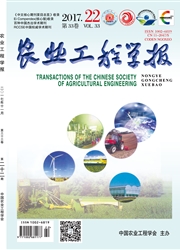

 中文摘要:
中文摘要:
Powers理论仅提出针对纯水泥水化产物体积的计算方法,为研究掺加矿物掺合料后的胶凝材料的水化产物体积的影响,该文基于水泥水化基本原理及矿物掺合料的反应机制,提出含掺合料胶凝材料的水化产物体积的计算公式,并将其应用于计算掺合料为0时凝胶材料水化产物的体积分数,与基于Powers理论模型的计算结果对比来验证该文提出的方法的可靠性,在此基础上,进一步研究水胶比、掺合料种类及其比例对胶凝材料水化产物体积的影响。结果表明:矿物掺合料掺量的降低和水胶比的增加都能促进复合水泥基材料的水化,相对而言,矿物掺合料增量对胶凝材料水化程度的影响较水胶比要大。复合胶凝材料中CSH、铝酸盐相AF和CH的体积分数均低于水泥浆体,未水化颗粒和毛细孔的体积均高于水泥浆体。分析发现,未水化颗粒、CSH凝胶和毛细孔的体积分数分别受水胶比×掺量×矿物掺合料种类(60.33%)、水胶比×矿物掺合料种类(91.79%)和水胶比(89.23%)的影响最大,CH和铝酸盐相AF的体积分数受掺量的影响最大,分别为6.17%和16.65%。研究可为锂渣、粉煤灰和钢渣在水泥混合材和混凝土掺合料中的应用提供科学依据,同时达到降低能耗和节约资源的目的。
 英文摘要:
英文摘要:
Powers theory proposes calculation method for the pure volume of cement hydration products, which does not apply to calculate the volume of cementitious materials with mineral admixture. The formula of cementitious materials volume was proposed that based on the basic principles of cement and mineral admixture hydration, and the proposed method of reliability was verified by the results of Powers theoretical model and volume fraction of cement hydration products. On this basis, the factor such as water-cement ratio, the ratio of admixture and types was further researched for the volumes of cementitious materials hydration products. Mixture in test were designed 2 water-cement ratio (0.30 and 0.40, respectively), two content (20% and 60%, respectively) of mineral admixture, and 3 kinds of mineral admixture (lithium slag, fly ash and steel slag, respectively), forming paste that was stirred according with the designed ratio in 5 mL centrifuge tube in a blender and curing to 1, 7, 14, 28, 60 and 90 d in curing room (temperature was (20±1)℃, humidity was not less than 95%), and then testing reaction extent of cement and mineral admixture (such as fly ash, steel slag. lithium slag) according with the chemical bound water and HC1 dissolution method. The results showed that hydration extent of lithium slag, fly ash and steel slag at 28d decreased by 46.63%, 69.56% and 74.82% (P〈0.05) when mineral admixture content varied from 20% to 60% and water-cement ratio was 0.30. Hydration extent of cement at 28 d was increased by 7.25% when water-cement ratio increased from 0.30 to 0.40. When mineral admixture content varied from 20% to 60%, hydration extent of lithium slag, fly ash and steel slag at 28 d increased by 24.14% 18.56%, 17.61% and 8.84%, 12.21%, and 29.37% (P〈0.05), respectively. In contrast, the influence of the mineral admixture content was bigger than water-cement ratio for the hydration extent of composite cementitious materials. In different water-cement ratio and the same
 同期刊论文项目
同期刊论文项目
 同项目期刊论文
同项目期刊论文
 期刊信息
期刊信息
